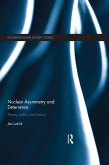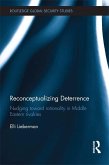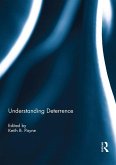Why do states persist in using force to enhance their deterrent posture, even though it is not clear that it is effective? This book develops an innovative framework to answer this question, viewing deterrence as an idea. This allows the author to explain how countries institutionalize deterrence strategy, and how this internalization affects policy. He argues that the US and Israel have both internalized deterrence ideas and become attached to these practices. For them, deterrence is not just a means to advance 'physical' security, but it constitutes their very selves as deterring actors. As a result, being unable to deter becomes a threat to their identity, evoking strong emotional responses. In recognizing these dynamics, the book provides a fresh perspective on the US war in Iraq (2003) and the Israeli war in Lebanon (2006), both of which can be seen as attempts to repair each country's shaken sense of self.
Dieser Download kann aus rechtlichen Gründen nur mit Rechnungsadresse in A, B, BG, CY, CZ, D, DK, EW, E, FIN, F, GR, HR, H, IRL, I, LT, L, LR, M, NL, PL, P, R, S, SLO, SK ausgeliefert werden.









